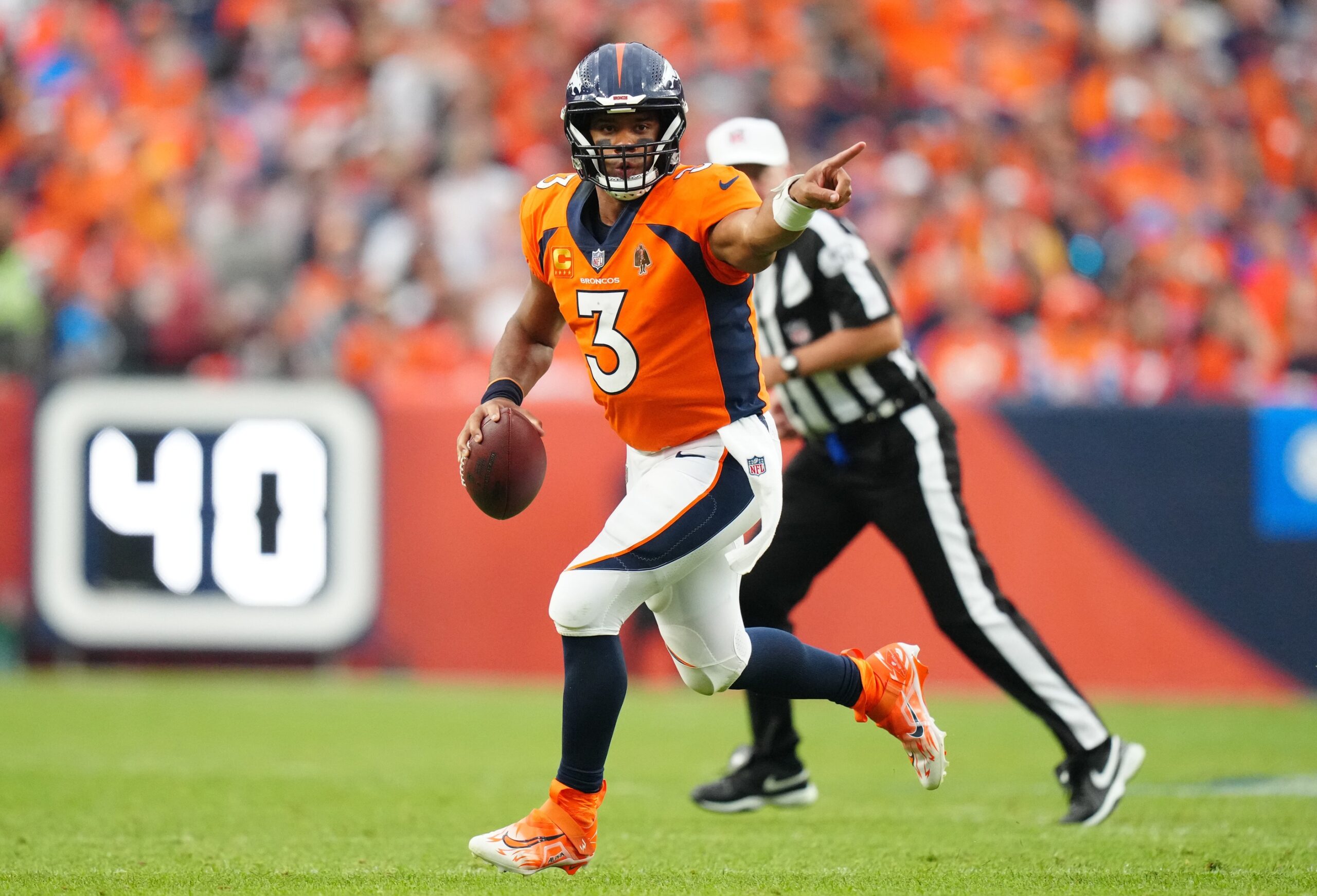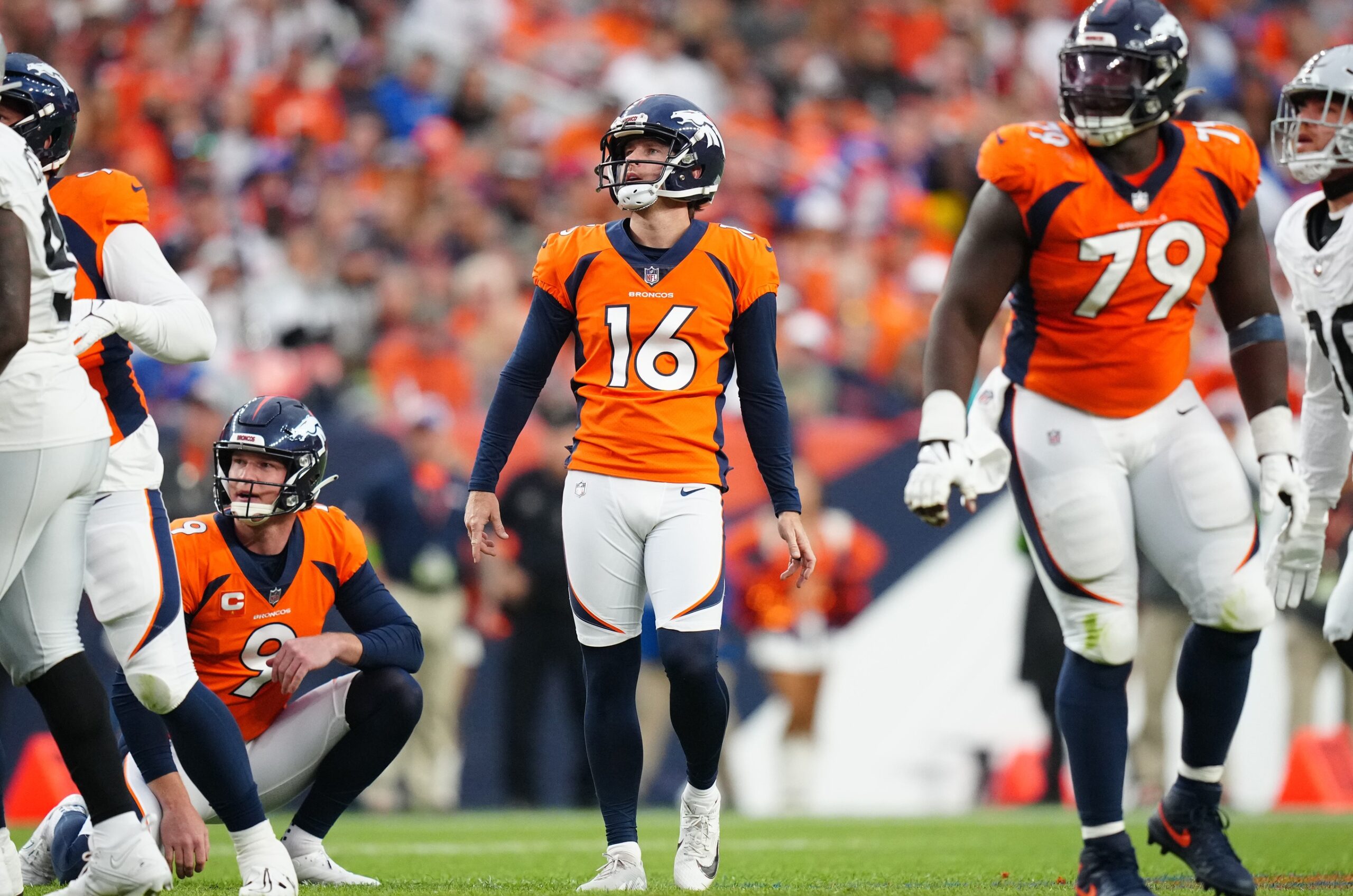© 2026 ALLCITY Network Inc.
All rights reserved.

DENVER, Colo. — Sunday afternoon felt all too familiar.
The Broncos lost their season-opening game to the Las Vegas Raiders by a score of 17-16. Denver had its opportunities to win the game; they led 16-10 midway through the fourth quarter, they had the ball down one point with more than six minutes remaining, and they had an opportunity to make a stop and get the ball back in the final minutes. Ultimately, they didn’t capitalize on any of them.
The Broncos scored 16.9 points per game last season, the worst mark in the NFL. They scored exactly 16 points four times. One of those was a 17-16 loss on opening night to the Seahawks, the same score as their season-opening loss on Sunday.
After an offseason that built guarded hope, the Broncos looked eerily similar to the 2022 version of themselves.
Here’s what we learned…
Football is still hard for the Broncos
When Sean Payton took over the Broncos, Broncos Country hoped that he could turn back the clock to before Super Bowl 50 when football—particularly offensive football—looked easy for the Broncos. But that didn’t happen on Sunday.
Instead, the Broncos trudged the same way they have for the past seven seasons. They weren’t inept, but even when things went well, they were grinding out 12- or 13-play drives to move the ball down the field. They lacked explosiveness. Nothing came easy.
That’s not to say a long drive is a bad thing. It isn’t. It shows that the Broncos can use the ground game and the short-passing attack to find steady gains, which wasn’t the case last season. Their 10 plays per drive on Sunday was nearly double their mark from last year. It’s a step in the right direction.
But in modern football, you need explosive plays, and the Broncos still can’t find those. Until they do, even their successes will look ugly.
Russell Wilson is efficient
Despite only scoring 16 points, quarterback Russell Wilson was efficient, and so was his offense.
Wilson completed 27 of his 34 pass attempts for 177 yards, two touchdowns and no interceptions. He led a couple of long scoring drives. He also led a sharp two-minute drill to score a touchdown before the half. He played a clean game. And he did all that without Jerry Jeudy, who is dealing with a hamstring injury, leaving the cabinet bare at receiver.
Most of his completions were for short gains, and his 5.2 yards per completion leaves plenty to be desired, but he took what the defensive gave him and kept the offense on track.

The Broncos’ 16 points don’t jump off the page, but it’s worth noting that the game was played at an incredibly slow pace. The Broncos averaged 1.44 points per possession last season, a bottom-three mark in the league, but their 2.67 points per possession on Sunday would have only trailed the Chiefs. The slow, methodical pace means margins are slim, but the Broncos’ offense executed… for the most part.
With 6:34 left in the game, the Broncos got the ball on their own 25, facing a one-point deficit. They went three and out. In each of their five other drives, they picked up at least three first downs.
Pat shuts down Davante
The marquee matchup on Sunday was between the All-Pros on the boundary.
Cornerback Pat Surtain II followed Raiders wide receiver Davante Adams around the field for most of the game on Sunday. Besides a third-down pass interference call, Surtain picked up an easy win in the battle.
Adams picked up 66 yards on six catches, but much of his production came against a zone defense when he wasn’t Surtain’s responsibility. Even if Surtain were responsible for all of Adams’ production, which he wasn’t, it still would have been a good day since Adams averaged 89 yards per game last season. Surtain broke up three passes, which is currently the second-most in the NFL behind Marshon Lattimore of the Saints.
Across from Surtain, things didn’t go so well.
Damarri Mathis spent most of his night trailing Jakobi Meyers. Meyers caught nine of his 10 targets for 81 yards and a pair of scores. Mathis had a couple of nice moments, like when he was in great position in the back of the end zone on the lone incompletion to Meyers, but Meyers won the matchup easily.
The special teams aren’t sharp
The Broncos opened the game with a surprise onside kick, which almost worked out. Denver recovered the ball, but cornerback Tremon Smith had touched it before it traveled five yards, earning a penalty flag.
The debacles on special teams continued from there. A Riley Dixon punt traveled 37 yards. Kicker Wil Lutz missed an extra point and a 55-yard field goal, which ultimately would have been the difference in the game.

After the game, while Lutz was speaking with the media about his performance and the emotions that come with his mistakes, tackle Garett Bolles walked over to tell reporters that Lutz is a “bad-ass kicker” and that the team loves him.
The Raiders made special teams mistakes of their own, most notably running into Dixon after he’d kicked the ball and giving the Broncos a free first down.
A lack of discipline was a problem for the Broncos, who earned 10 penalties for 83 yards.
Two Broncos leave with injuries
Safety Caden Sterns left the game on a cart and was quickly ruled out with a knee injury. He charged into the backfield on a blitz and landed on his knee.
Greg Dulcich walked off the field, grabbing the back of his leg in the second quarter, and was later ruled out with a leg injury.
Comments
Share your thoughts
Join the conversation



